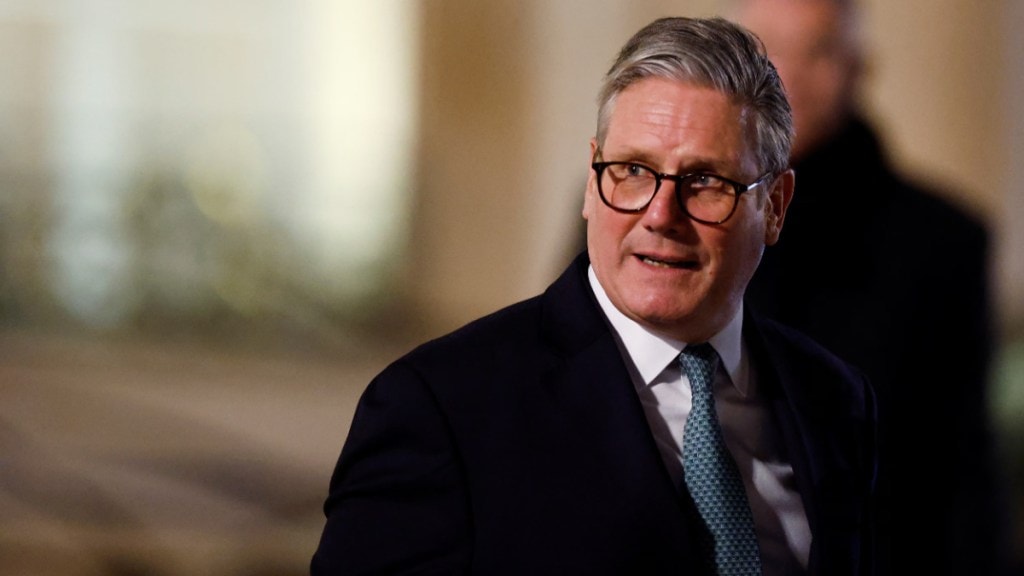UK Prime Minister Keir Starmer on Tuesday said that Britain will not seek a visa deal with India, even as he works to strengthen the economic relations following the trade agreement. Speaking to reporters on his flight to Mumbai, where he is going to promote the trade deal signed in July, Starmer said it “isn’t part of the plans” to offer more visa slots for Indian workers.
Starmer will begin a two-day visit to India on Wednesday, leading a business delegation to promote the trade deal and is set to take effect in 2026. He is accompanied by 125 business and cultural leaders, some of whom have warned the UK that limiting the number of foreign workers could lead to a labour shortage.
‘Visa situation hasn’t changed with FTA,’ says Starmer
Starmer said that visa-related issues had stalled earlier efforts to finalise a trade deal. Now that an agreement has been reached without any visa changes, he does not plan to reopen the topic during his meeting with Prime Minister Narendra Modi on Thursday.
“That isn’t part of the plans,” he told reporters on his way to India when asked about visas, adding that the purpose of his visit was “to take advantage of the free trade agreement that we’ve already struck.”
“Businesses are taking advantage of that. But the issue is not about visas. It’s about business-to-business engagement and investment and jobs and prosperity coming into the United Kingdom,” Starmer said.
Under the UK-India FTA, both countries agreed to keep the existing rules that allow short-term business travel between them. Starmer said no new visa options were added in the deal and noted that his government had managed to “un-block” the issue that earlier delayed the talks, when India had asked for more work visas for its citizens.
Starmer facing pressure on migration as businesses warn of talent loss
Starmer’s government is facing growing pressure to cut the number of people entering the UK, as the anti-immigrant Reform UK party gains support in the polls.
Starmer has proposed tougher rules, such as increasing the number of years a person must live in the UK before applying for permanent residency, and linking that right to their “contribution” to the country, a Bloomberg report said.
However, many fear these plans could discourage skilled workers, who may choose countries with simpler and clearer settlement options.
The Confederation of British Industry, whose chief executive Rain Newton-Smith joined Starmer’s trip to Mumbai, said migration is essential to address labour shortages in the UK.
Bill Winters, the head of Standard Chartered and also part of the delegation, had previously warned that stricter immigration rules could hurt London’s ability to attract top talent.
Starmer seeks global talent amid high H-1B fee, dismisses fears over exodus of the wealthy
Starmer further added that he wants the best global talent to come to the UK and help grow the economy, especially at a time when some skilled workers may avoid the US due to higher visa costs under President Donald Trump. He did not share details on how his government plans to attract such people, though reports suggest a special visa may be introduced for foreigners who invest large amounts in Britain.
At the same time, data shows that many ultra-wealthy individuals have been leaving the UK after the Labour government ended certain tax breaks for non-domiciled residents, the Bloomberg report said. Starmer said he is not concerned about this trend and added that ending those tax benefits has helped bring in more revenue, which is being used to improve public services like the National Health Service.
Starmer is also facing pressure to send back migrants who have committed crimes in the UK. The country currently has return agreements with just over 20 nations, and efforts are underway to expand this number. Starmer said officials are considering linking visa policies with return agreements, though he noted this is not an issue with India since both countries already have such an arrangement.
